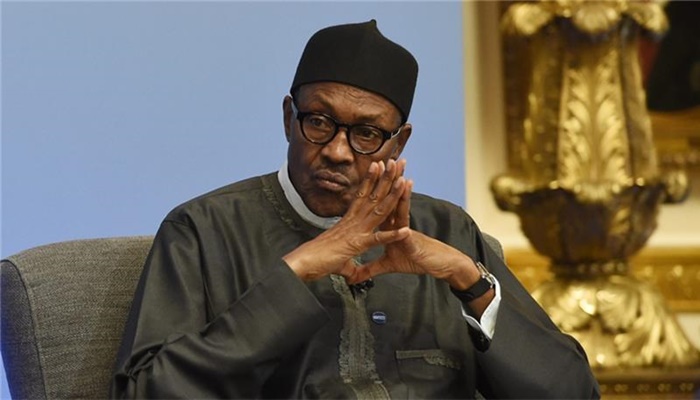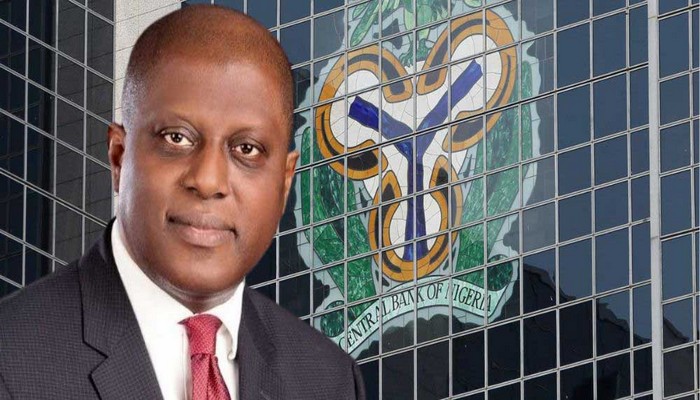
Nigerian ethnic nationalities, self-determination groups, civil society organisations and professional and youth organisations have concluded a meeting in Lagos to examine the state of the Lagos concluding thus: “clearly, the current administration of President Muhammadu Buhari has failed in the discharge of its primary responsibility of securing citizen’s lives and properties”.
At the end of the two-day meeting, which held on Wednesday and Thursday, the group decried “the rising spate of killings across the country, especially the communal clashes, farmers/herders conflicts and attacks by bandits in Zamfara, Taraba, Adamawa, Kaduna, Benue, Kogi, Nasarawa, Plateau and across at least eight other states of the country”, and criticized their shoddy handling by the government
In their resolutions at the end of the meeting, they pronounced, among others, “that the current dangerous situation which places the younger generation of Nigerians at the receiving end of all the violent incidences is unacceptable and must be halted”; that “clearly, the current administration of President Muhammadu Buhari has failed in the discharge of its primary responsibility of securing citizen’s lives and properties” and that “Nigerian elders, leaders of thought, theological and cultural leaders and all our international friends “ must “step in quickly and save the situation as any further delay could be dangerous”.
They also resolved to “give a two-week ultimatum to all the stakeholders in the Nigeria project to act decisively to avoid the consequential backlash of overstressing citizen’s patience”.
THE FULL STATEMENT
JOINT STATEMENT AT THE MEETING OF ALL NIGERIA ETHNIC NATIONALITIES, SELF-DETERMINATION GROUPS, CIVIL SOCIETY ORGANIZATIONS, PROFESSIONAL AND YOUTH ASSOCIATIONS
July 8, 2018
INTRODUCTION
A meeting of the above listed groups was held in Lagos from the 4th to 5th of July, 2018 to discuss the rising spate of killings across the country, especially the communal clashes, farmers/herders conflicts and attacks by bandits in Zamfara, Taraba, Adamawa, Kaduna, Benue, Kogi, Nasarawa, Plateau and across at least eight other states of the country.
The meeting became necessary in view of the scary figures quoted by various national and international bodies accounting for the lives lost to series of violent situations in the last few years.
The situation is so disturbing that the UK House of Lords for instance, recently expressed worry about the inability of the Nigerian authorities to end the excessive killings, warning that ethno-religious violence in the country may escalate to the Rwanda type genocide if the federal government remained complacent about it.
On its part, Amnesty International, on June 27, 2018 quoted 1,813 violence-related deaths based on reported cases since January 2018 alone, with many more killings during the period which were either denied by the government, or were never reported at all.
In a separate report, the United States Council on Foreign Relations’ Nigeria Security Tracker says it has documented at least 19,890 deaths in Nigeria since June 2015, just after the current administration assumed office on May 29, 2015.
The CFR, an independent body of experts dedicated to providing advice on policy options facing countries, put the cumulative deaths from May 2011 to May 2018 at 53,595 in violence that is both causal and symptomatic of weakness of Nigeria’s political institutions and citizen alienation.
They also included violent incidents related to political, economic, and social grievances directed at the state or other affiliated groups (or conversely the state employing violence to respond to those incidents.)
Armed with sophisticated weaponry, bands of killers moving freely, are believed to have killed more men, women and children in 2015, 2016 and 2017 than Boko Haram has done in the 12 years of its violent campaign.
And these untamed bandits and armed ethnic militias who have killed thousands with impunity, are most likely to kill more in the absence of prosecution or deterrent, with government appearing helpless or unwilling to act decisively.
OBSERVATIONS
The meeting observed that while the militancy by Boko Haram is still active in the north east, the general security situation is further darkened by ethnic violence, farmers/herders clashes and other forms of communal conflicts that sometimes acquire religious overtones, in addition to a new generation of Niger Delta militants and Biafran agitators threatening war against the state.
The meeting also observed the rate at which, government soldiers kill civilians indiscriminately, the Police growing more notorious for extrajudicial murder in addition to an escalating trend by which innocent travellers and ordinary passersby are waylaid and killed by armed ethnic militias on public highways.
It was also observed that these attacks and killings have already gotten out of hand, occurring with such frequency and sophisticated organisation that their characterisation as ‘clashes’ no longer suffices.
While unchecked gangs of criminals plunder hundreds of communities, rape several women, kidnap innocent villagers including children and displace hundreds, some leaders, such as the Kaduna state Governor Nasir elrufai say, the number of deaths is yet insignificant for the nation to worry.
Such callous remarks by people in authority give credence to concerns that these ugly incidences are encouraged by the tardy, untidy and often indifferent posture or attitude of the current government which has been slow, indecisive or mistaken in its responses. For example, it took the President in particular, several years to visit Zamfara, many more months to go to Taraba and about 10 weeks to visit Benue after the killing of thousands of citizens in those states.
And while consoling mourners in all these states, the President only found time to blame the opposition for the continued attacks, not minding that the buck stops with him, especially on security matters; which is what being Commander-In-Chief is all about.
In another observed lapse elsewhere, Mr President simply told foreign audience in both the United States and Britain, that the killers in Nigeria were Gaddafi trainees who dispersed across the Sahel after his death, without bothering to explain the effort his government had made to apprehend the criminal intruders.
And rather than pursuing a collective coordinated response, the President’s approach to this and similar urgent national issues have come with grave consequences, including non-cooperation between the presidency and other arms of government and lack of coordination among security agencies to the extent that whatever measure the government has employed in dealing with the killings has failed.
This failure has already given rise to speculations suggesting that the bloodbath is deliberately orchestrated by those holding power in order to service occultic demands, or that government is manipulating the situation to split the nation along religious or ethnic fault lines in order to gain the sympathy of certain sections in the forthcoming general elections.
OUR STAND
- We pronounce that the current dangerous situation which places the younger generation of Nigerians at the receiving end of all the violent incidences is unacceptable and must be halted.
- Clearly, the current administration of President Muhammadu Buhari has failed in the discharge of its primary responsibility of securing citizen’s lives and properties.
- Consequently, we urge that the President as the chief security officer of the country has so far proved to be ill-prepared and incompetent to bring the situation under control.
- We warn that Nigeria, Africa and indeed the entire world may not be able to cope with the consequences of a full blown religious or ethnic war in Nigeria which the current dangerous trend portends.
- The situation also portends the immediate danger of scuttling the nation’s democratic order with the dire consequences of a drift to anarchy.
- We call on Nigerian elders, leaders of thought, theological and cultural leaders and all our international friends to step in quickly and save the situation as any further delay could be dangerous.
- Finally, we have resolved to give a two-week ultimatum to all the stakeholders in the Nigeria project to act decisively to avoid the consequential backlash of overstressing citizen’s patience.
THANK YOU
SIGNED:
- Mallam Shettima Usman Yerima,President, Arewa Youth Consultative Forum (Convener)
- Mazi Okechukwu Iziogosoro (National President, Ohanaeze Youth Council)
- Eric OlawOlawale (Yoruba Youth Council)
- Barrister Pereotubo R. Oweilaemi (President, Ijaw Youth Council and President, Ethnic Nationalities of Niger Delta) on behalf of over 200 youth ethnic nationalities groups across Nigeria and in the Diaspora.






